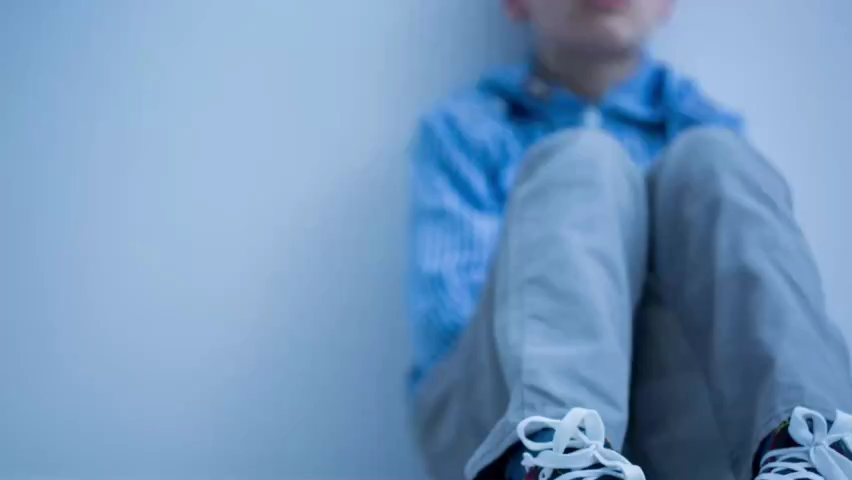Is it legal to leave kids home alone in Indiana? What the law says, what's recommended

Now that summer is in full swing in Indiana, parents might wonder how to keep their kids busy over the next several weeks.
If they haven't already signed up for summer camps or daycare, some Hoosiers might consider leaving their kids home alone — but is that legal? Here's what we know.
Is it illegal to leave kids home alone in Indiana?
Technically, there's no law in the Indiana Code that prevents children from being left home alone. Hoosier parents have discretion on when it's appropriate to do so. There are, however, consequences if a child suffers as a result of neglect.
Parents and legal guardians in Indiana are ultimately responsible, the law says, for the welfare of their children until age 18. Neglect of a dependent carries felony charges that include stiff penalties and potential jail time.
Summer reading: This is what Indianapolis residents are reading this summer at the public library
At what age can children be left home alone in Indiana?
Children, according to SafeKids.org, are generally ready to be left unsupervised around age 12-13. Granted, children develop at different rates. There's no "magic age" when a kid becomes suddenly responsible enough to be left by themselves for long hours at a time. What it really comes down to, experts say, is maturity.
The Indiana Department of Child Services advises parents to assess what tasks children can do themselves, whether they have the common sense to make good judgments on their own, and how capable they are at handling unexpected challenges.
Know the law: Can you legally break into a hot car to save a dog in Indiana? What about a child?
Basic skills every latch-key kid should have
Children, experts say, should have several basic skills before becoming latch-key kids, which include: knowing how to lock and unlock a door, how to respond if a stranger knocks or calls, how to apply basic first aid, how to be safe in the kitchen, make themselves a snack and what to do in an emergency situation if there's a fire or tornado.
Of critical importance: they must have a reliable method of communication to call their parent or guardian, or 9-1-1.
How to tell when you can leave a child home alone
Experts recommend parents assess their child's needs, which begins with a conversation. Does your child want to be alone? For other considerations, the Children's Service Society of Utah has this checklist:
Physically, is your child able to:
Lock and unlock doors and windows in your home?
Do self-care tasks, such as making a sandwich, dialing the phone and writing messages?
Mentally, does your child:
Tell time?
Recognize danger and know when to get help?
Understand clearly what “stranger” and “emergency” mean?
Solve problems on his or her own?
Consider how his or her actions affect others?
Socially, does your child:
Solve conflicts with siblings with little help from adults?
Talk easily to you about school, friends and about his or her feelings?
Feel confident enough to contact an adult if a problem arises?
Emotionally, does your child:
Feel confident and secure when alone?
Seem willing to stay alone for short periods? For longer periods?
Know how to handle fear, loneliness or boredom?
Handle responsibilities, such as going to school on time?
Know how to look out for younger siblings?
Before you leave your child, show them:
Where things are in the house and how they work (circuit breaker, etc).
Where the flashlight and first aid kit are located.
Things in the house that may make strange noises.
How to be safe in the kitchen, including turning off the stove.
Who to call or where to go if there is a problem.
What they need to do as soon as they get home (lock the door, call you, etc).
What gas smells like when it is leaking (if applicable) and what to do.
Practice with your child:
Safe ways to answer the phone and the door.
How to get out if there's a fire.
Locking and unlocking doors.
Prepare for your child:
A phone list of people they know well and can call if they need help.
A list of house rules (for moments when friends arrive at the door).
Healthy snack foods they can prepare without cooking.
An extra key hidden outside in case they lock themselves out.
Fun things for each child to do when they get home.
Leave on lights or radio as pre-planned with them.
Protect your child:
Lock up medicines, alcohol and weapons.
Install smoke detectors and make sure they work.
Let them know what time you will be home; call if you will be late.
Ask them how things went; allow them to suggest changes in these plans
Reporting child abuse and neglect in Indiana
Indiana law requires anyone who suspects child abuse or neglect to contact authorities and make a report, which can be done so anonymously. Hoosiers can call DCS' Child Abuse and Neglect Hotline: 1-800-800-5556.
The phone line is available 24 hours a day, 7 days a week, including weekends and holidays and caller can report abuse and neglect anonymously. In 2023, according to DCS, nearly 200,000 calls were made to the child abuse hotline in which officials handled 215,852 reports of alleged abuse and neglect.
'Inside Out 2': When you can watch Disney's movie from the comfort of your own home
John Tufts covers trending news for IndyStar and Midwest Connect. Send him a news tip at JTufts@Gannett.com. Follow him on Twitter at JTuftsReports.
This article originally appeared on Indianapolis Star: What age can kids be home alone in Indiana? Is it legal? What to know

